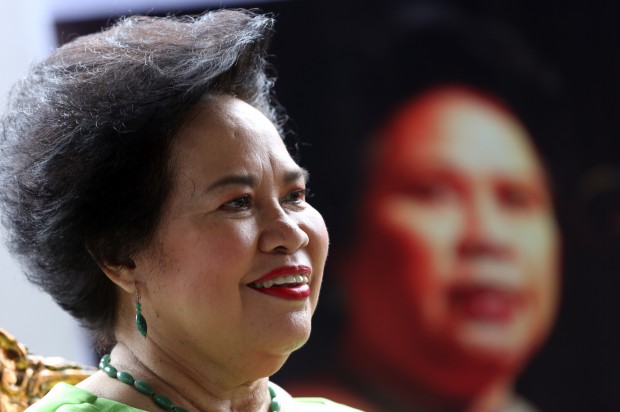DAVAO CITY — If presidential candidate Sen. Miriam Defensor-Santiago finds her way to Malacañang, she vows to capitalize in human resources.
In her speech during her campus tour in the University of the Philippines Mindanao this week, she cited a recent UP study that showed that education must be complemented with research and development (R&D) in order to make human capital highly competitive.
Key investment areas include agriculture; manufacturing and micro, small, and medium enterprises; health, renewable energy and environment.
Santiago said that should she be president, she would propose to have an R&D allocation equivalent to 1 percent of gross domestic product. By her last year in office or after six years, it will be gradually increased to 2 percent.
READ: Santiago to raise final Comelec debate ‘to higher level’
As a lawmaker, she claims to have filed several bills targeting to create an environment conducive to innovation, such as the Scientific Communications Act, Research and Development Efficiency Act and the International Science and Technology Cooperation Act. All these bills are only at the committee level, however.
“If Congress fails to approve these proposals by midterm, I shall issue executive orders with the same effect,” she said.
Santiago said that in order to lure Filipino scientists and researchers to come home, salaries will be increased and there will be additional incentives for experts.
“We must invest in people. We need to educate, them take care of their health, and feed them so they will become productive members of a growing work force. Only by investing in people can we truly make growth inclusive.”
The senator stressed the need for education, which she says will be a “cornerstone” of her administration.
READ: Santiago to youth: Help end culture of corruption
“We will educate the poor by institutionalizing conditional cash transfer (CCT) program, including a provision that expands its coverage to include beneficiaries aged 15 to 18. We will bridge the classroom gap, both through increased public investment and improved private participation through the public-private partnership program. We will continue to support the K to 12 program, but will also make sure that it is in sync with all efforts in technical-vocational education and training,” she said. CDG
